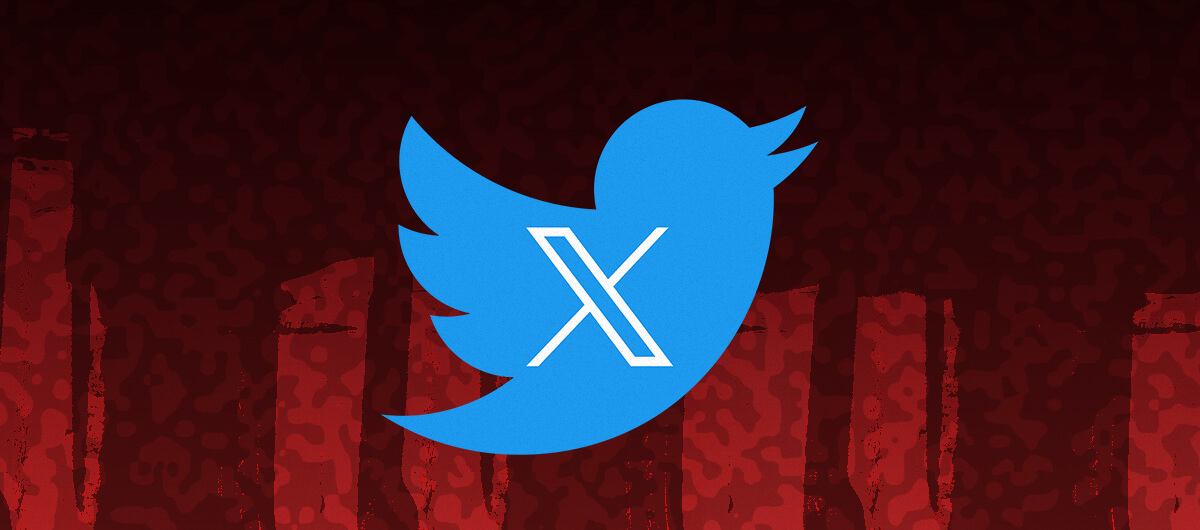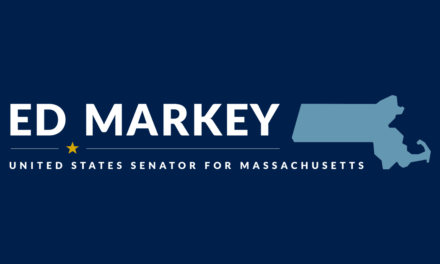
Twitter was one of the most important tech utilities for reporters to break stories and deliver real-time news, until Elon Musk bought the company. He not only killed the social media platform, he destroyed one of our most vital news outlets.
This article was made possible because of the generous support of DAME members. We urgently need your help to keep publishing. Will you contribute just $5 a month to support our journalism?
It’s heartbreaking what ten years and a Nazi-enabling takeover can do to one of the most important tech utilities of the modern era.
I speak, of course, of Twitter.
Ten years ago this summer, I built the bulk of my core Twitter following while live-blogging a landmark legislative session for abortion rights here in Texas. On Twitter, reporters and activists provided vital context and updates to folks who were interested in the goings-on but didn’t know all the players or the stakes. We were surrounded by thousands of fellow orange-clad Texans supporting Wendy Davis’s filibuster in the state capitol proper, as well as by a community of hundreds of thousands virtual supporters cheering us on in real time.
But in the aftermath of Elon Musk’s Twitter takeover, I am struggling to reach more than a few dozen people at a time— across Twitter and a handful of other social platforms—as I live-blog another historic Texas legislative event: the impeachment of Attorney General Ken Paxton. Covering the Paxton impeachment trial live today is like running through a warren of empty hallways, opening random doors, in hopes you’ll find a bursting auditorium behind one of them. More often, it’s a broom closet.
Twitter’s degradation is already having significant consequences not only for highly clouted super-users with millions of followers, but for what I think of as the “workhorses” of the platform. People like me: the writers, academics, journalists, and content creators who once camped out on the app most days following the news, the jokes, and the general conversation.
Musk would now have us call the platform “X”—nobody does, of course—and has churned Twitter into a pay-for-play circus where Neo-Nazis, anti-Semites, and other racists and bigots and transphobes have the run of the ring. Musk has blocked access to TweetDeck, an app that once upon a time enabled users to view many columns of different feeds and notifications, for anyone who isn’t a paid subscriber. New algorithms push irrelevant content, much of it worthless faff from right-wing blue-check users, to the top of our timelines. Following a live hashtag requires manually refreshing the browser or app. According to Twitter’s own questionably reliable analytics, other users’ engagement with my tweets is down nearly 60 percent from the previous 28-day period, and I’m losing hundreds of followers each month.
For folks who once relied on Twitter to interact with colleagues and neighbors, who used the app as an essential public square where anyone could be heard, even if they didn’t have institutional backing or the all-important “clout,” the loss of Twitter as a meaningful social tool has meant a loss of income, opportunities, and precious social and professional connections.
“Everyone in media knows that Twitter isn’t a major driver of traffic for big outlets, but it was vital for independent writers,” said writer Luke O’Neil, who publishes essays and fiction on his newsletter. “Now it won’t show my links to barely anyone with the algorithmic feed. It has seriously hampered my ability to reach an audience.”
Chrissy Stroop, a writer, academic, and researcher who helped build a community of “exvangelicals” on Twitter and Facebook in the 2010s, told me that Twitter, at its best, was her “bread and butter.”
“Editors found me and offered me work, and I could regularly attract new patrons for my Patreon,” Stroop said. “Then the algorithmic changes started killing me even before Apartheid Man took over. But with him it’s gotten much worse, and quickly.” She said she’s lost hundreds of dollars a month in Patreon support, and “it’s been a double whammy with inflation.”
Twitter was always exhausting, but if you put the work in, the payoff was real. Like Stroop, I could never have built the career I have today without Twitter as it once was. Twitter was a place to add my voice to the coastal clamor of media outfits based in New York and Los Angeles. Marginalized folks and people living in under-covered geographies, especially as local newsrooms have downsized and shuttered, turned to Twitter as a place to share stories and experiences they didn’t see reflected in mainstream news coverage. Now? You can tweet into the void and never know who, or what, might tweet back.
“You can throw a line down the well, but lord knows you may pull up. A shoe? You may get a tire,” said Dallas journalist Bethany Erickson, “or you might get an actual human being, but is it a three-headed, live human being?” I’ve been exchanging tweets with Erickson for over a decade, but we finally met over the phone when I called her for this story. Twitter seems capable of bringing people together even as in its final gasps—appropriate enough for a platform that, until recently, seemed to succeed despite itself.
Indeed, Twitter could be a hell-hole of harassment and bigotry and bot-attacks even pre-Musk—and especially post-Trump—but it was also an important place for creators to promote their work, network with like-minded folks, and for activists to organize in their own communities as well as around the world.
“Twitter has been a part of my life since a friend shared it in beta,” wrote journalist and essayist S.E. Smith, when I reached out to fellow Twitter mourners. “It has profoundly shaped what I do, who I am, who I interact with, and while it has been traumatic, it has also been really eye-opening and fulfilling.”
Smith left Twitter entirely in the Musk-wake; many folks I’ve spoken to said they’d like to leave, but they’re afraid of their handles being appropriated by the platform’s proliferating right-wing contingent. Others, like myself, grudgingly remain on the platform in hopes of gleaning what little benefit is left.
“I see Twitter as an unpleasant work responsibility these days,” wrote Evan Urquhart, who produces an independent newsletter covering trans issues. “It’s too big to ignore, but there’s not that feeling of positive energy for change, or of positivity or fun.”
Part of the difficulty of being an independent writer, academic, or content creator in the post-Twitter world is due to the fact that being “good” at Twitter doesn’t necessarily translate to other social-media platforms. Instagram, for example, is photo-focused and hostile to links, intentionally so, making it difficult to drive traffic outside the app. The barrier to entry on TikTok is particularly steep for folks not adept at video production, and its algorithm is anti-chronological, making it a poor place for breaking news—something Twitter excelled at. BlueSky mimics Twitter in a lot of ways, but it has a fraction of the fraction of the user base, and I have similar complaints about Mastodon and its infinite, often siloed instances. When I publish something new, for example, I now have to spend significantly more time posting and adapting my work across the dozen or so platforms and Mastodon instances I now use in an attempt to engage the same folks I used to reach with one click on Twitter. It makes the internet exhausting in a whole new way.
Oralia Torres de la Peña, a film critic, writer, and translator based in Monterrey, México, said she’s tired, too: “Professionally, my work is being seen and shared less, so it’s harder to be present and find more freelance work.” As for adapting her work across platforms: “On Instagram, video content is the norm, so I’d have to work a lot more to promote my work and adapt it to a format that I don’t really like nor want to do. Yes, it could be a new branding and learning opportunity, but I just like to write.”
Torres de la Peña said Twitter’s loss has felt personal, too. She misses her friends and, of course, the memes and dunks: “There’s nothing quite like it in other places. [Twitter is] where a Mexican anti-abortion congressman shared a poll asking if you would have preferred to be aborted, and was truly shocked that the ‘yes’ answer won. That kind of humor and dunking on the powerful doesn’t translate as well to other places.”
Without Twitter operating in its full capacity as a public utility, reduced access to breaking news and other essential information spells trouble for the public at large. This observation came from Luke O’Neil, who recently tried to find news about storms in California only to be confronted with endless “highway sharks”—sensational photos of sea creatures swimming on public roadways that surface whenever disaster strikes. Typically, those images are debunked and dunked on quickly. Now, they dominate Twitter’s offerings in times of crisis.
It’s hard not to think that the dismantling of Twitter as a public utility by a billionaire boychild is something more than an accident in our still-COVID-ridden, increasingly climate-disaster-prone world. Elon Musk has grown ever more open about his alliances with right-wing politicians, authoritarians, and fascists—even over the last week. Of course Musk never wanted to make Twitter a “free speech” haven; he wanted to be the arbiter of which speech is free (the kind of speech that harms people he doesn’t like) and which speech is outlawed (the kind of speech he doesn’t like). And so far, the platforms competing to replace Twitter haven’t shown themselves to be particularly welcoming spaces for the people Musk clearly hopes to boot from his app: Black, Indigenous and people of color, trans and queer folks, and folks at the intersections between.
The only solace I take is that, as I and others struggle to cobble together the connections and audiences that we once cultivated on Twitter and lose money in the process, Musk is losing, too. Every day, he becomes a bigger punchline. Someday, the outsize tab he’s run trying to keep hold of Twitter will come due. I hope that when it happens, the expats of Twitter will have settled in a new place where we can watch his downfall together.
Before you go, we hope you’ll consider supporting DAME’s journalism.
Today, just tiny number of corporations and billionaire owners are in control the news we watch and read. That influence shapes our culture and our understanding of the world. But at DAME, we serve as a counterbalance by doing things differently. We’re reader funded, which means our only agenda is to serve our readers. No both sides, no false equivalencies, no billionaire interests. Just our mission to publish the information and reporting that help you navigate the most complex issues we face.
But to keep publishing, stay independent and paywall free for all, we urgently need more support. During our Spring Membership drive, we hope you’ll join the community helping to build a more equitable media landscape with a monthly membership of just $5.00 per month or one-time gift in any amount.



